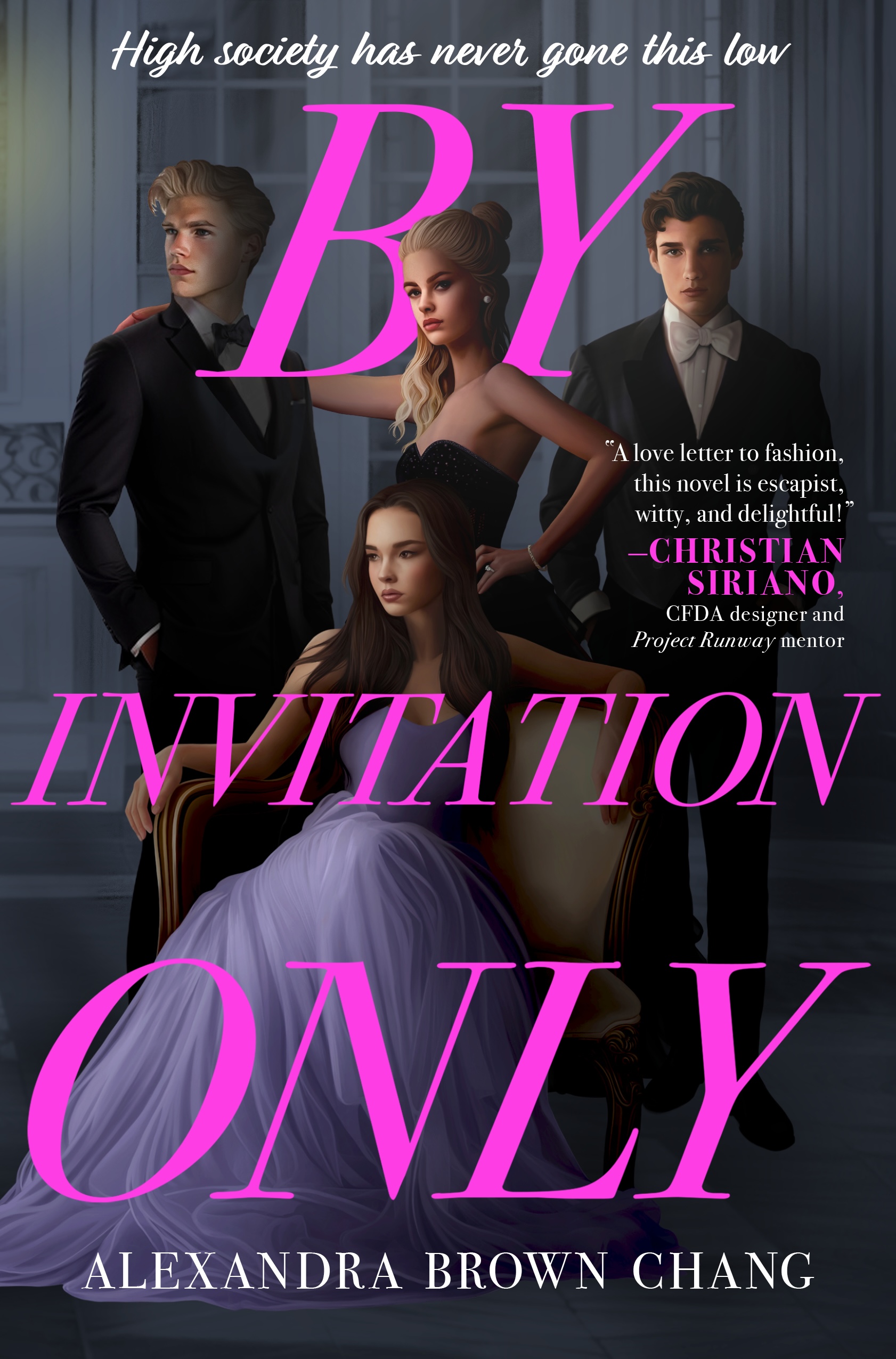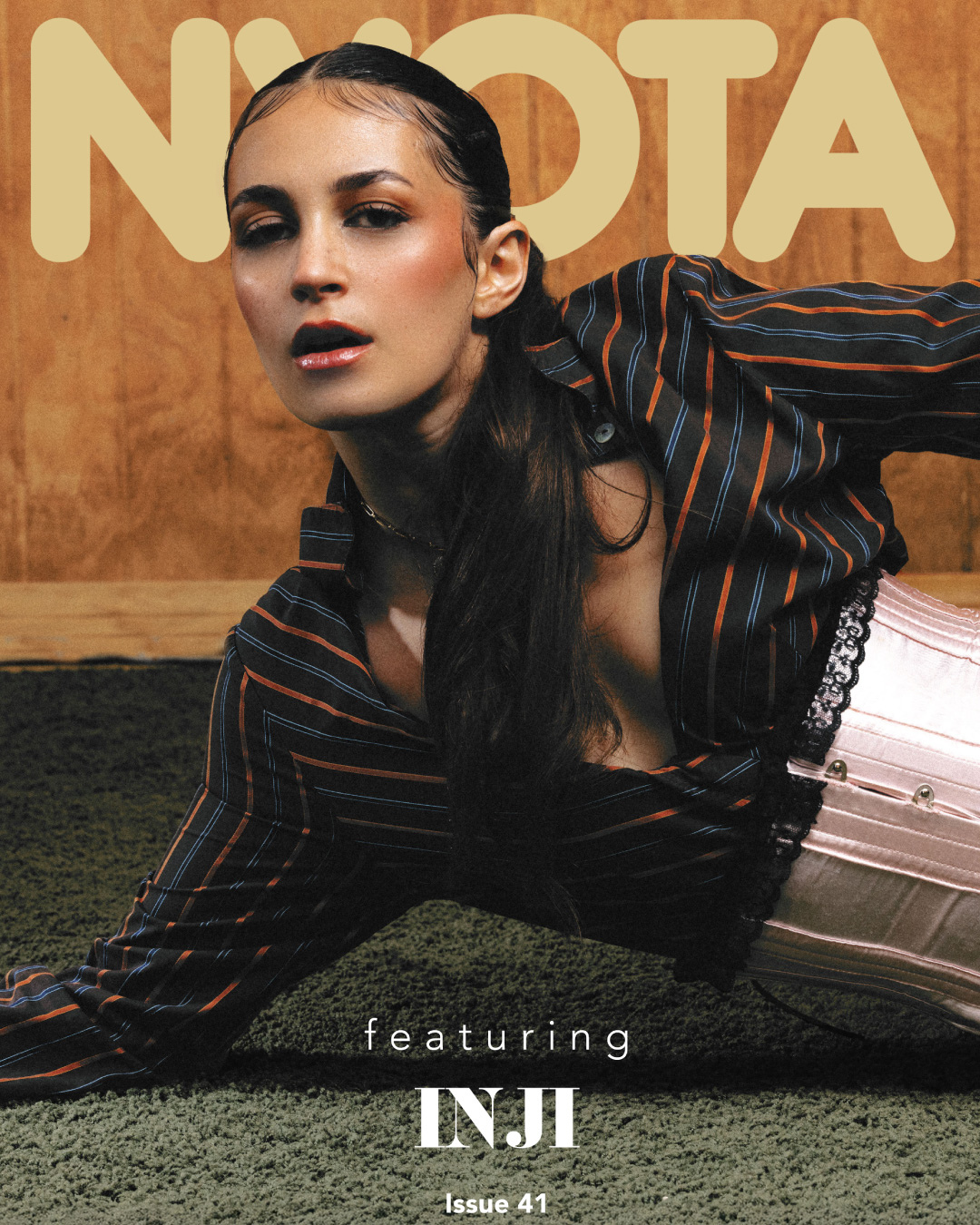Alexandra Brown Chang knew from a young age that her interests would lead her down an unconventional career path. Now, she is a published author, and her debut novel, “By Invitation Only,” is sure to win over YA readers everywhere. Brown Chang spoke to NYOTA about the research that went into the story, exploring larger cultural conversations, and the music she listened to while writing.

You’re an entrepreneur and author. Growing up, did you always envision yourself creating your opportunities and taking less-traveled paths?
Looking back, I realize that many of the fields I was naturally drawn to—writing, filmmaking, art—rarely offered clear-cut, linear career paths. I wasn’t consciously thinking about that as a kid, but the areas that captured my interest tended to require a more unconventional approach. In hindsight, it makes sense that I ended up becoming an author, as I’ve been telling stories from the moment I could talk!
You recently came out with your debut novel, By Invitation Only. When you held the completed, hard copy of your book for the first time, how did it feel?
It felt completely surreal! I came up with the initial idea for By Invitation Only over five years ago, so holding the final, physical version in my hands was incredibly exciting.
I love the playlist you have at the beginning of the book. It’s nice to have a particular song connect you to a moment in a story, similar to when great songs are used in scenes from book to movie adaptations (for example, the use of “Spotlight” by Mutemath in Twilight). Were songs in the playlist, songs you were listening to while writing?
I listened to a ton of Taylor Swift, The Cure, Lorde, and Fleetwood Mac songs while working on the book. So, yes, some of the songs in the playlist were definitely part of the writing process. Others weren’t necessarily what I listened to while writing, but they just fit certain scenes perfectly. For example, when Piper and Chapin finally team up, “Get Him Back!” by Olivia Rodrigo captures that energy so well.
The book is loosely inspired by your time as a debutante. Outside of your personal experience, how much research did you do to learn the ins and outs of the La Danse des Débutantes and the traditions of certain members of high society?
I drew upon my own debutante ball preparation experience, but I also dove deep into fashion history— which, as a longtime passion of mine, never felt like work for a second! I looked through countless old issues of Vanity Fair, Tatler, and other society publications to capture certain couture and high society details, while still imagining a fresh, modern take on the debutante ball. I even pulled from my time interning in Zac Posen’s atelier when I was in high school. Weaving my love of fashion into the story was such a joy because to me, fashion is an art form. Over the course of the story, all of the characters come to appreciate that too, seeing how clothing can tell a story just as powerfully as anything else.

There are so many small details that have to be considered for each character, such as where they’re from, hair color, personality quirks, and more. How did you decide on these details for your characters, especially for Piper and Chapin, whose personalities tend to clash?
I created mood boards for every debutante to pin down each one’s look and aesthetic. I wanted all of the young women to feel visually and stylistically distinct: Chapin is more minimalist, Piper is more maximalist, Chloe leans bohemian, and Lottie is avant-garde and experimental. With Piper and Chapin in particular, I knew from the start that I wanted both their personalities and styles to clash. Piper begins the novel without a clear signature look. She knows what she likes and dislikes, but her personal style hasn’t fully emerged. That transformation happens during her time in Paris, with Chapin helping her discover it. Chapin, on the other hand, has a very curated aesthetic: minimalist, vintage-inspired, with sleek silhouettes, neutral tones, and clean lines. And because debutantes at La Danse come from all over the world, it was fun to incorporate a global mix of influences into their characters’ signature styles.
The book manages to touch on a lot of hot topics in today’s world, including cancel culture, sentiments around the rich, and more. When the idea for the plot started coming to you, did you already have in your mind that you wanted to tackle some of these larger cultural conversations?
I definitely wanted to include some social commentary and satire – plus, it’s almost unavoidable with a debutante ball as the backdrop. While the setting is over-the-top and obscenely opulent at times, at its heart, the story is about romance, friendship, and young women supporting each other. I came up with the setting before anything else, and the characters came next. With Piper as a fish-out-of-water in this world of extreme privilege, it felt like a natural way to explore some larger cultural conversations.
With BookTok on the rise, many young people are rediscovering the joy of reading. When you decided to start writing By Invitation Only, did you take into account any of the trends of young readers that people are seeing on BookTok? Or did you try not to have the algorithm factored in?
BookTok has been such an amazing force, for both readers and authors. I love that so many people are getting back into reading, and we have TikTok to thank for much of that! When it came to writing By Invitation Only, I didn’t focus on specific TikTok trends. Trends move so quickly, and by the time a book goes through the editing and publication process, what’s trending could be totally different, or gone altogether. That said, I did include language and references that feel true to 2025 to make the story feel grounded in the current moment. My goal was to make it feel relevant and authentic to today’s readers, but I didn’t let social media algorithms dictate the story. Chasing trends feels like a losing game to me.
What advice do you have for aspiring authors?
Never give up! It’s trite, but true. Rejection is a part of every writer’s journey, and I would encourage any writer to keep going and try not to get discouraged. Rejection is simply part of the process, and if you believe in your idea enough, don’t let it go. I’d also tell aspiring authors that cold emails and queries definitely do work – that’s how I found my agent!
This story first ran in NYOTA’s Empowerment Issue. Read more from the Issue here and purchase a print copy here.




